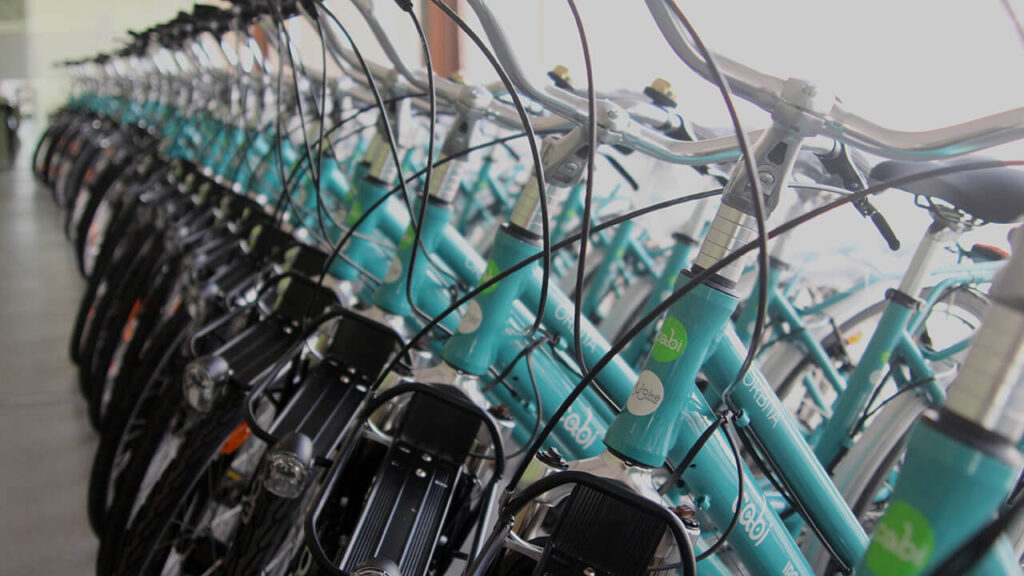
Sustainable mobility is a goal for those who manage our cities, and we need to find attractive ways to promote it. Legal obligations to reduce energy consumption, greenhouse gas emissions and air pollutants mean that we need to consider how to attract people to sustainable modes of mobility, particularly by reducing car use and improving people’s quality of life.
The U-Bike Portugal Project is a project to promote cycling in universities, which aims to encourage more sustainable mobility habits by making electric and conventional bicycles available.
It is a national project, coordinated by the Institute of Mobility and Transport, I.P. (IMT), and developed by universities across the country, following a common approach but allowing for specific strategies with local characteristics of each academic community.
The U-Bike project is funded by PORTUGAL 2020, more specifically by PO SEUR (Operational Programme for Sustainability and Efficiency in the Use of Resources).

At IPCA, the implementation of the project, within the framework of national objectives, provides 130 bicycles (65 electric, 65 conventional), called CABI, with the following objectives:
- – Use of electric and conventional bicycles in the academic community to encourage a change in mobility habits, shifting the use of individual motorised transport (TIM) to cycling for journeys to and from the campus;
- – Reduce primary energy consumption, with the aim of achieving a 3% saving by switching from TIM to cycling;
- – Reduce greenhouse gas emissions and air pollutants; Be a driving force for sustainable mobility initiatives in the municipality of Barcelos.
With CABI, IPCA hopes to contribute to the adoption of sustainable and energy-efficient mobility habits, with benefits for the environment, health and land management. At an institutional level, this project is part of the Green, Healthy and Safe Campus Strategic Axis, which, together with other initiatives, promotes a more sustainable society and invests in improving the quality of services for its academic community.




